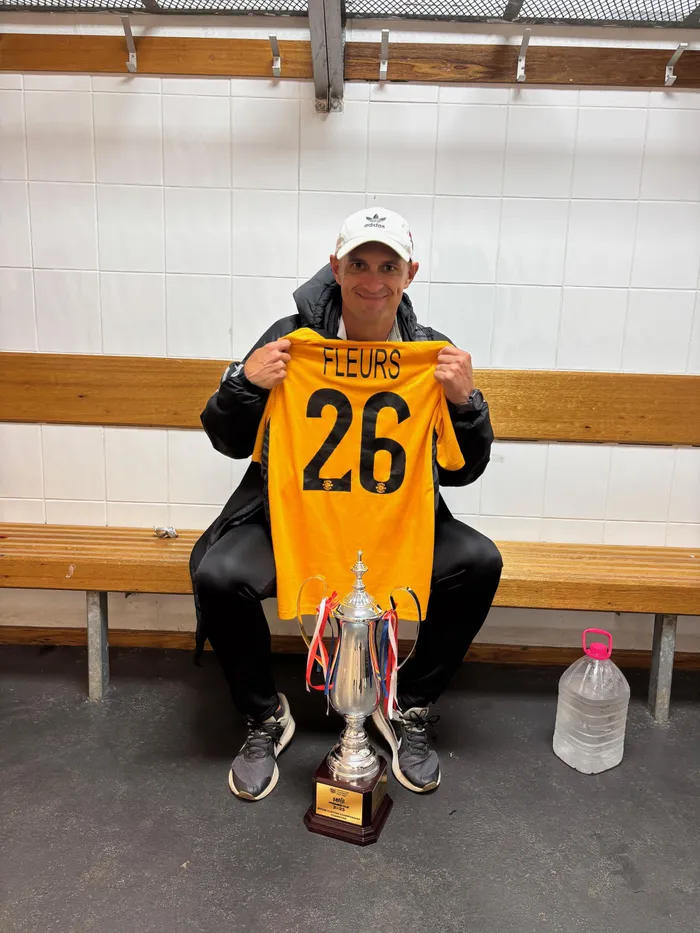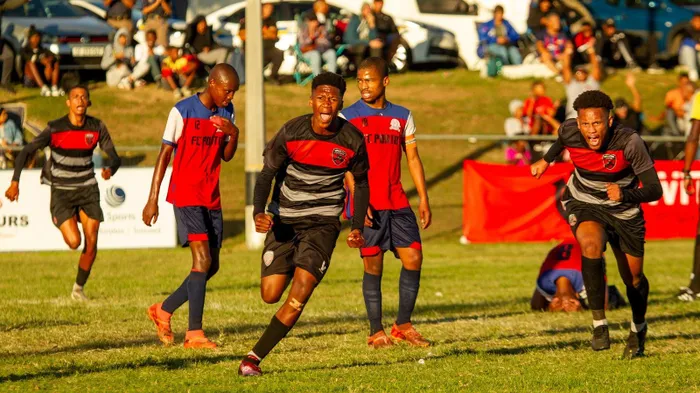From zero to hero: How the youngest team, Ubuntu, went on to win Africa’s Bayhill football tournament
FOOTBALL

Casey Prince, the founder and executive director of Ubuntu Football Academy, says players are given a unique opportunity as boys and girls who are talented, but have no opportunity to be developed as a whole person through football and academia. Photo: SUPPLIED
Image: Supplied
“Football was never meant to be such an intense part of my life, but God called me here – and here I am, more than 15 years later,” says Casey Prince, the founder and executive director of Ubuntu Football Academy, a transformative youth development programme, which recently won the Bayhill tournament for the first time in their history.
The Bayhill tournament is the biggest and most prestigious Under-19 football tournament in Africa.
A total of 32 teams competed in eight groups. The Western Cape was represented by 18 teams, with 14 sides coming from other provinces and abroad.
Originally from the USA, Prince played university football on a scholarship and – in his own words – “had a very brief and unillustrious football career”.
Prince moved to South Africa in 2009 to start the academy, which eventually took off in 2011.
The Ubuntu Football Academy provides a unique opportunity for talented boys and girls who lack access to holistic development.
They are nurtured both in their football and academic potential, and are empowered through various platforms to make a meaningful impact later on in life.
Through this journey, says Prince, they are guided towards discovering their life’s purpose.

The Ubuntu Football Academy offers holistic mentorship to exceptional young players over a sustained period of six years (12-18 years old) focusing on their football, education and formation. Photo: SUPPLIED
Image: Supplied
Speaking about their historic victory at the Bayhill tournament earlier this year, Prince noted that this specific competition had long eluded them since the club’s inception.
“The Bayhill has been the elusive one. When we first started, we were a bit clueless and didn’t know what to expect. We began with a group of 11- to 12-year-olds. We had this idea that, even if we just worked with that one group of youngsters, that would be enough.
"It came from trying to take a manageable first step.
"We focused on what was important for that group of players, which was the Strandfontein tournament. Winning that tournament was our first goal.
“As we progressed through the age groups, we began to understand just how big a deal the Bayhill tournament really is.”
Being the youngest team at this year’s Bayhill, Prince shares the secret behind their success.
“Our squad had three under-16 players, six under-17s, six under-18s, and five under-19s. We were very young, and those three under-16s played a lot. They played in the semi-finals, and two of them started in the final.
“We went into the tournament asking ourselves, ‘Would it be possible to win this?’
“Given the grind of a six-day tournament, it doesn’t really favour the younger players – it favours the 19-year-olds, whose bodies can better handle the intensity.
“We spoke a lot to the players about wanting to complete the full six-day journey and not end their tournament on the Saturday.”
Coming from the United States, Prince shares how different football is in South Africa compared to back home, especially at grassroots level.
“There’s a really special quality that South African players have, which is their technical ability.
“Flair and trickery are a big part of the game here.
“There are some basic technical skills that American kids have over South African kids, but that’s just down to the resources available.
“American kids can strike the ball better than South African kids, but that’s only because every American field they train on has multiple goalposts, whereas South African kids in the townships or Cape Flats communities often don’t have any goalposts.
“And if they do, they probably don’t have nets.
“South African kids don’t train finishing that intensely, and that’s one technical difference.
“But I’ve found that the game in the United States is much more focused on athleticism. It’s more physical in terms of using your hands and body.
“They don’t tackle the way South African kids tackle – that’s something special.
“Games in the US can be a bit rigid because everyone plays the same way, and there’s a lack of creativity compared to what South Africans bring to the game.”
But what is it that drives Prince to do what he does?
“Mostly, it’s just about being obedient to what God wants me to do. I love the game, but before, I was coaching for fun in the United States – it was just an extension of my other work.
“I simply replaced whatever I was doing before with coaching but more intensely.
“Then I went through the licencing process and started to grow, and I surrounded myself with the right people. I’ve really enjoyed it.
“Now, I don’t have time to coach anymore – they’ve kind of fired me – and now I do everything else.
“But I still enjoy it, especially when I get to be out on the field.”
He shares that the Bayhill tournament theme was: stick together, give it everything, and everyone matters. And, it seems, Prince and his academy live by this.